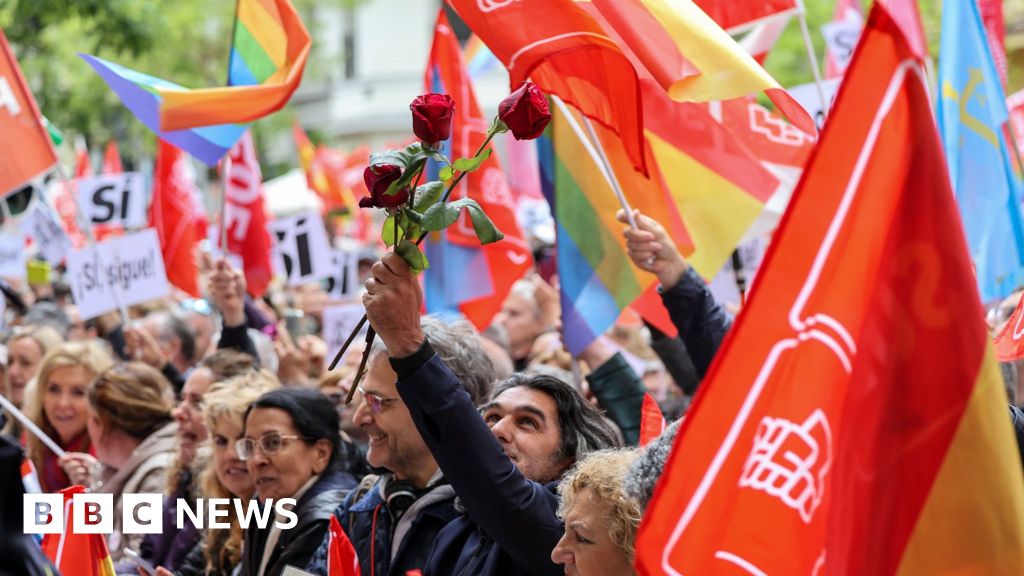Meta is considering paid versions of Facebook and Instagram that would not contain ads for users in the European Union, three people familiar with the company’s plans said, in response to regulatory scrutiny and an indication of how people experience the technology in the United States and Europe. It may vary due to government policy.
Those who pay for Facebook and Instagram subscriptions will not see ads in the apps, said the people, who spoke on condition of anonymity because the plans are confidential. The people said it could help Meta fend off privacy concerns and other scrutiny from EU regulators by giving users an alternative to the company’s advertising-based services, which rely on analyzing people’s data.
The people said Meta will also continue to offer free versions of Facebook and Instagram with ads in the EU. It is not clear how much the paid versions of the apps will cost or when the company might release them.
A Meta spokesman declined to comment.
For nearly 20 years, Meta’s core business has centered on providing free social networking services to users and selling advertising to companies that want to reach that audience. Providing the paid tier would be one concrete example so far of how companies have had to redesign products to comply with data privacy rules and other government policies, particularly in Europe.
In July, the European Union’s highest court effectively banned Meta from merging data collected about users across its platforms — including Facebook, Instagram and WhatsApp — as well as from third-party websites and apps, unless it obtains the users’ express consent. In January, the company was also fined €390 million by Irish regulators for forcing users to accept personalized ads as a condition of using Facebook.
These provisions stem from the 2018 enactment of Europe’s General Data Protection Regulation, or GDPR, which was landmark legislation to protect people’s data online.
The openness of Meta to create paid subscriptions shows how those living in the European Union, which includes 27 countries and nearly 450 million people, may start to see different versions of consumer technology products due to new laws, regulations and court rulings.
In recent weeks, as a new EU law called the Digital Services Act came into effect to stem the flow of illegal content online, TikTok and Instagram users in the region were also able to block the use of personal data to create their social media feeds. Snapchat and meta It banned marketers from targeting 13-17-year-olds in Europe with personalized ads.
And by next year, another technology-focused EU law, the Digital Markets Act, will come into force. This is set to force major technology platforms to change certain business practices to encourage competition and will have wide-ranging effects, as Apple is expected to allow users in the European Union to download alternatives to the App Store on iPhones and iPads for the first time.
“This shows that tech companies are adhering to EU digital regulations, suggesting that they remain beholden to governments rather than the other way around,” said Anu Bradford, Columbia University law professor and author of Digital Empires: The Global Battle to Control Terrorism. Technology regulation.”
Meta, which also owns Messenger, has faced particular scrutiny from European Union regulators. And in May, the European Union fined the Silicon Valley company €1.2 billion for violating its privacy laws by sending data about European citizens to US servers for the purposes of improving the company’s advertising technology. Meta has appealed the ruling.
Meta has been fined for other GDPR breaches, including a €265m fine for a data leak in 2021. Irish regulators have also imposed fines of €225m for breaches in a case involving WhatsApp, and another €17m for a data leak. data.
Some Meta insiders believe that giving users the option to opt out of an ad-based service while still having access to a paid version of Facebook or Instagram could alleviate some of the concerns of European regulators, two of the people said. They said that even if only a few people opt for the paid version, making such an option available could serve the interests of Meta in the region.
Meta hasn’t launched its new app Threads, a competitor to X, formerly Twitter, in Europe due to regulatory concerns.
Europe is the second most meta-earning region after North America. Susan Lee, Meta’s chief financial officer, said in April that advertising in the European Union accounted for 10 per cent of the company’s total business. Meta revenue totaled nearly $117 billion last year.
Away from European challenges, Meta is trying to rejuvenate its business after global economic tensions hampered advertising sales growth. It’s also still pushing its vision of the immersive digital world of Metaverse, an expensive project backed by Mark Zuckerberg, the company’s CEO, which is still in its early days. The executives are focused on developing AI technologies and integrating them into more Meta products.

“Typical beer advocate. Future teen idol. Unapologetic tv practitioner. Music trailblazer.”






More Stories
Long lines form and frustration grows as Cuba runs out of cash
The FCC's net neutrality vote affects your internet speed: We explain
Daimler Trucks workers reach agreement and avoid strike threat in North Carolina